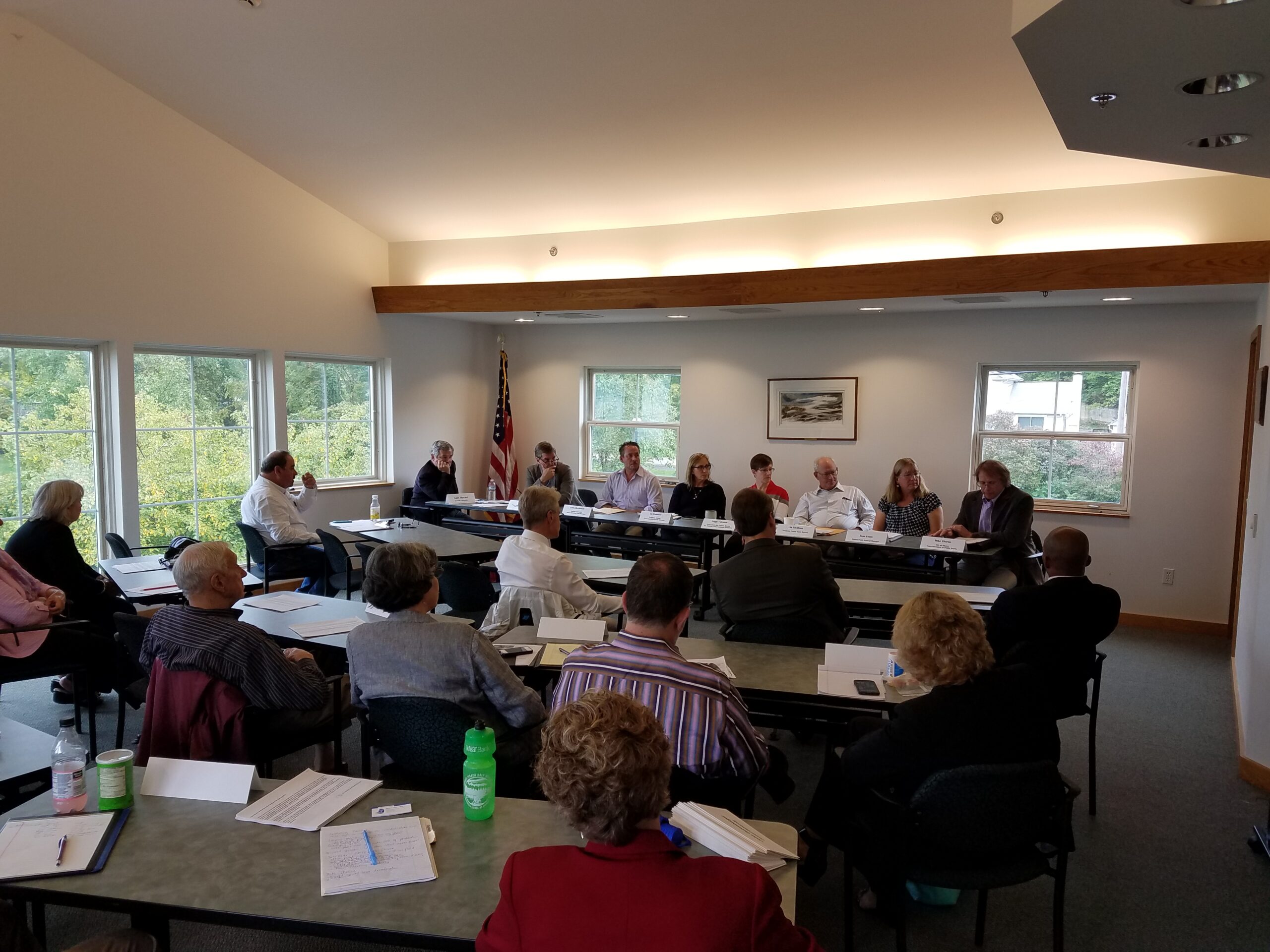On Monday, October 3rd, the Chamber Government & Community Affairs Committee hosted a panel to discuss the ongoing severe drought conditions in Tompkins County. Gary Stewart, Director of Community Relations at Cornell, and Vice Chair, Government & Community Relations for the Chamber, coordinated and moderated the panel discussion.
The panel consisted of local experts and leaders knowledgeable about the economic impacts and community response to the drought conditions, including: Fred Bonn, NYS Parks/Finger Lakes Region; Lin Davidson, Tompkins County Farm Bureau; Chris Bordlemay, Cornell University Water Filtration Plant; Mike Thorne, City of Ithaca Public Works; Joan Foote, General Manager of Bolton Point; Peggy Coleman, VP Tourism for the Convention & Visitors Bureau/Chamber; and Liz Cameron, Tompkins County Environmental Health.
The group provided insight regarding numerous impacts of the drought. Key themes included:
- Understanding that though the weather has cooled, and we’ve had some rain, last week was actually the lowest stream flow rate for Cornell’s water supply all season.
- Entities such as the Department of Health, Bolton Point,Cornell University Water Filtration Plant, andCity of Ithaca Public Works, among others, meet quarterly throughout a normal year. This summer and fall they have been meeting bi-weekly, and sharing information even more regularly.
- Once voluntary conservation measures were instituted, nearby community members self-imposed conservation measures as well—resulting in increased water conservation even in areas that it wasn’t required. This is a fantastic outcome.
- The drought has severely impacted several crops, most notably hay and corn. Farmers already struggling with market conditions have been impacted negatively. Though grants and loans are available to provide support, a severe drought like this is difficult for many to recover from. One vegetable grower in Lansing experienced 1/3-1/2 of their normal production.
- Communication became very important for many parties involved, particularly to residents.
- Many businesses, including restaurants and hotels, had to change their behavior during the water crisis within the City of Ithaca.
- Tourism related impacts include visitors seeking information about waterfalls more in advance of their visit, being directed to where they can locate flowing waterfalls once they arrive, and visitor specialists referring them to more activities.
- NYS Park visitation was up significantly this season, so it doesn’t seem that the drought had direct impacts on visitation at the state parks which rely on waterfalls as a main point of attraction.
Our Government & Community Affairs Committee was extremely thankful for the input and perspective provided by this panel, and engaged in a lengthy question and answer period. The Committee looks forward to engaging with more local experts on important community issues in the coming months.
Contributed by Jennifer Tavares


